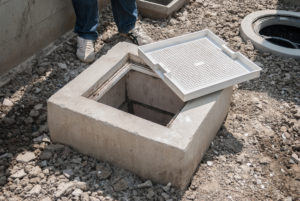 Are you moving soon? Your septic system must be in good working order before you can sell your house. As the seller, you should be prepared to disclose information about your septic system, including any known issues and its maintenance history. And if any repairs are needed, you must take care of them before closing. This is why it pays to have your septic system inspected as soon as you start thinking about moving.
Are you moving soon? Your septic system must be in good working order before you can sell your house. As the seller, you should be prepared to disclose information about your septic system, including any known issues and its maintenance history. And if any repairs are needed, you must take care of them before closing. This is why it pays to have your septic system inspected as soon as you start thinking about moving.
How Common are Septic Systems?
While most homes in the United States are connected to a centralized public sewer system, septic tanks are more common than you might think. According to the EPA, more than one in five US households relies on individual onsite or small community septic systems for wastewater treatment. Homes and businesses in suburban and rural settings are more likely than city dwellers to need a septic tank.
Why are Septic System Inspections Important when Selling a Home?
As a responsible septic system owner, you should have your tank regularly inspected, especially if you notice any minor issues developing. Having a professional check your tank, distribution pipes, and drain field can save you time and money on septic repairs and extend the system’s lifespan. In short, inspections take the guesswork out of potential future expenses.
Scheduling a septic system inspection shortly before selling your house benefits all parties involved. Get it done early to avoid potential delays leading up to closing day. Early inspections are especially important if your system is more than 20 years old. The tank could be nearing the end of its life expectancy and may need attention or even replacement before you can sell.
Are Septic System Inspections Required?
Many counties have mandated point-of-sale programs, meaning that all septic systems in the county are subject to health department inspections before a home sale can close. Even if your county doesn’t mandate septic inspections, many lenders require it as a condition of giving the buyer a mortgage. And if that’s not the case, the buyer will typically request one.
What Does a Septic Inspection Entail?
During the visit, inspectors ensure the septic tank is installed properly and compliant with environmental regulations. The inspection also involves checking the drain field to ensure proper function. Distribution pipes get looked over as well to ensure little to no sludge buildup. If it’s been more than three years since your last septic tank pumping, this is a good time to have it done.
Once complete, you receive an inspection report, and a copy also goes to whoever requested the inspection—the county, the lender, or the buyer. If the health department doesn’t approve the system, you’ll need to take corrective actions before the sale can go through.
Trinity Liquid Waste offers residential and commercial septic system inspections in San Francisco, CA. Drawing on 25 years of industry experience, we can provide quick, safe, and efficient work on every inspection we complete. Contact us online or call us at 510-874-6489 to request your next service.
““
